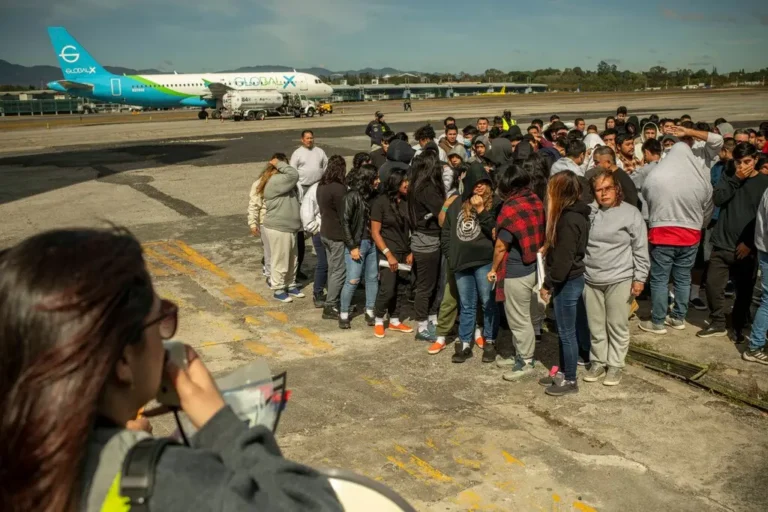In a significant development, Colombian President Gustavo Petro has agreed to permit U.S. military flights to transport deportees back to Colombia. This decision follows earlier tensions after President Petro denied entry to U.S. military aircraft designated for deportations, citing concerns about ensuring humane treatment for Colombian deportees.
The diplomatic exchange between the two leaders intensified and led to a statement from the White House on Saturday night. In the statement, the U.S. administration noted that because President Petro agreed to comply with established terms, the previously threatened tariffs would not be imposed. However, other measures, including visa restrictions, will remain in place until the first group of deportees arrives in Colombia.
“This situation demonstrates to the world that America is respected once more,” the statement read, emphasizing the U.S.’s commitment to maintaining strong diplomatic relations in the region. In response, Colombia’s Foreign Ministry confirmed that the impasse had been resolved and reiterated its commitment to accepting deportation flights while ensuring the dignified treatment of returnees.
Initially, President Petro expressed reservations about deportation flights, taking to social media to state that he would not permit U.S. military aircraft to operate in this capacity unless safeguards were established to ensure a respectful process for Colombian migrants. He emphasized, “If that country sends them back, it should be with dignity and respect for them and for our country.”
The situation escalated when former President Donald Trump threatened to impose a 25% tariff on all Colombian imports, with the possibility of increasing it to 50% within a week. This move was framed as part of Trump’s broader immigration policy, supported by an executive order authorizing the military to assist in deportations. In response, President Petro announced counter-tariffs on U.S. imports, heightening the diplomatic standoff.
President Petro also raised broader concerns, questioning the motivations behind the U.S.’s actions and advocating for respect for Colombian sovereignty. The exchange underscores the complexities of U.S.-Colombia relations, with Colombia remaining heavily reliant on the U.S. as its primary trading partner, even as China’s influence in the region grows.
Political analysts, such as Will Freeman from the Council on Foreign Relations, noted the significance of this standoff. “Colombia remains the U.S.’s longest-standing ally in the region, so threats to impose such tariffs are significant,” Freeman commented. The stakes are high for both nations, with potential implications for immigration policies and international diplomacy.
As tensions ease with plans for deportation flights now underway, the situation highlights broader challenges in balancing domestic and international priorities. For President Petro, navigating these complexities comes amid domestic hurdles, including corruption investigations, security concerns, and approval ratings hovering around 34%. While the immediate crisis may have subsided, the potential for future disputes remains as both nations manage evolving responsibilities on the global stage.
For further details, clarification, contributions or any concerns regarding this article, please feel free to reach out to us at editorial@tax.news. We value your feedback and are committed to providing accurate and timely information. Please note that all inquiries will be handled in accordance with our privacy policy



